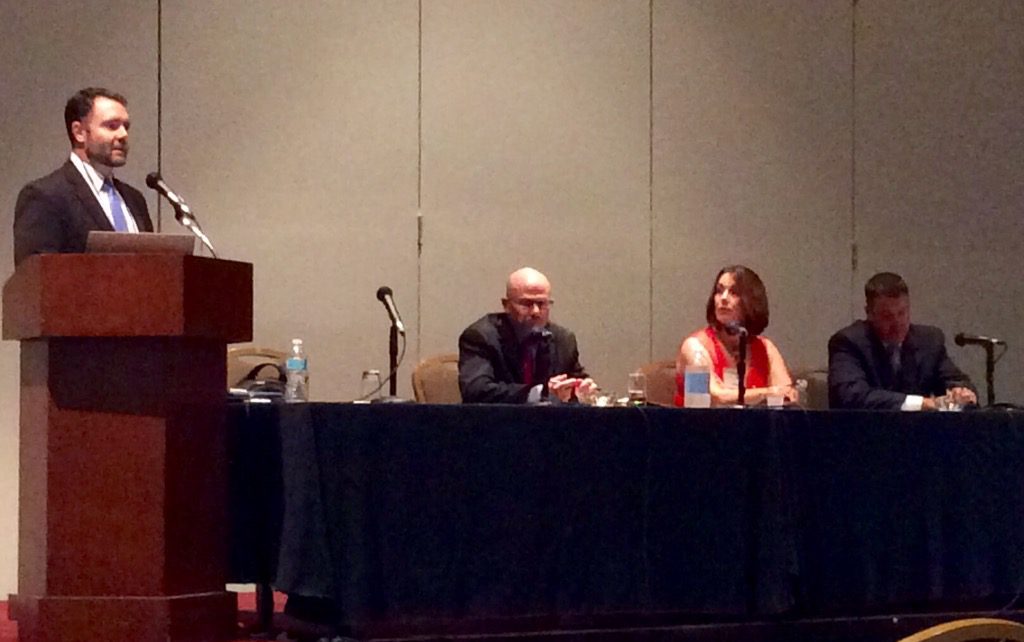Difficulties of Surgery in Workers’ Compensation
As the medical costs of workers’ compensation claims have risen sharply in recent years, the importance of understanding the role surgery plays in a claim has grown. This session at WCI’s 2016 Workers’ Compensation Educational Conference discussed various delays and pitfalls related to surgeries in workers’ compensation.
Speakers included:
– Cheryl Gulasa, Vice President, AmeriSys
– Dr. Steven Weber, Board Certified Orthopedic Surgeon, Orlando Orthopedic Center
– Michael Costello, Regional Director, Tenet Healthcare
– David Anderson, Vice President of Operations, Orchid Medical
Continuum of Care
Because you are working with various stakeholders, there is a big barrier to getting surgery approved and it causes delay in care for the injured worker. Some approves are more conservative than others. Attitude is a large contributing factor in healing and, if there is a big delay, the patient often feels slighted and enters the surgery process with a chip on their shoulder.
From a doctor’s standpoint, the physicians and reporting mechanisms can help move the needle towards approval. A risk calculator can be utilized to show a risk profile to help show if the person is a good surgery candidate. They can also expedite delivery of information to the adjusters to help get authorization.
Litigation and Settlement
Sometimes litigation and settlement is the motivation for an injured worker to have the surgery. Sometimes it is a road they take to get the settlement. Anytime a claim goes into litigation, it slows everything down. The nurse case manager can no longer talk to the client. It does nothing but delay care.
Selecting a Surgeon
You have to get to know your local community to uncover who works well within the system. Conservative care should often take precedence before surgery, but you have to know the right doctors that make the right decisions. You should also get to know your local imaging centers to get good, quality, honest reads. Where you send your people is going to matter.
Ask questions. If a surgeon isn’t willing to take the time to meet with nurse case managers, fill out required forms or follow fee schedules, they are not good candidates to accept workers’ compensation patients. Not every surgeon is made to work in this system, so these are good questions to ask.
Fee Schedules
Fee schedules are a large challenge because they vary by state. They can also be limiting and they need to evolve so that doctors can accept patients sooner. There recently have been codes added related to the spine, which has help to changed the landscape, but there is more that can be done.
Outcomes
There are many items that lead to negative results. Often, there are secondary gains to be had in the workers’ compensation arena, which is a large impediment to healing and return to work. In addition, patients are often not compliant with post-opp recovery recommendations.


